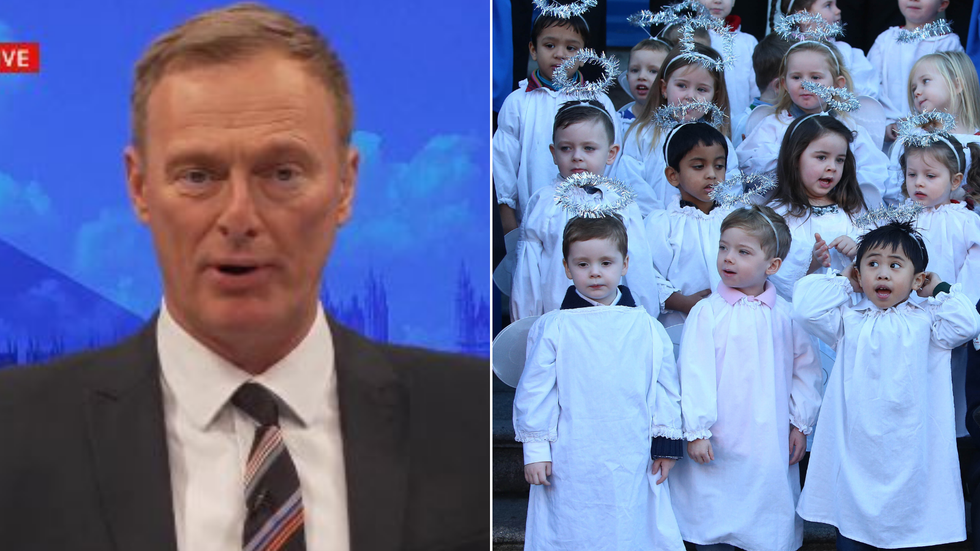Replacing nativity does not honour diversity, it dilutes our heritage and leaves a cultural void - Sally-Ann Hart
Sally-Ann Hart was the Conservative MP for Hastings and Rye from 2019 to 2024
Don't Miss
Most Read
Trending on GB News
Most people love the festive season, with our streets lit up, Christmas trees adorning our homes, and families coming together to celebrate.
Yet, for many, the deeper meaning of Christmas is eclipsed by commercialism and increasing secularism that strips away our Christian religious heritage.
Christmas traditions, and observing Advent and the nativity, are not relics of the past; they are vital threads in the fabric of British culture and identity, and we neglect them to our detriment.
In the Christian calendar, Advent is the season of preparation and anticipation leading up to the birth of Jesus Christ.
Advent calendars and wreaths, the lighting of candles each week, and communal carol services are the ways we mark this sacred time, imbuing it with spiritual significance.
The nativity, a story we are all familiar with, refers to the birth of Christ and the moment when God took on human form to redeem us all.
It reminds us of the humble circumstances and profound spiritual significance of Christ’s arrival, and cuts across social divides, with the angels appearing to both poor shepherds and the Wise Men.
School nativity plays and church services are cherished traditions in Britain, reinforcing the Christian values of love, hope, and generosity that underpin our society.
In recent years, public celebration of Christian traditions has often, sadly, been side-lined in the name of inclusivity, with schools and public institutions replacing the nativity with generic “winter festivals” or “holiday celebrations.”
This does not truly honour diversity because it dilutes our own heritage and leaves a cultural void.
LATEST MEMBERSHIP OPINION:

Martin Daubney is worried it will be his daughter's last nativity this year
GB NewsThis is particularly apparent when we compare Britain to other countries. In Romania, Poland and Ukraine, for example, where faith was suppressed under Soviet communism, Christianity is flourishing.
Even in China, Christianity is one of the fastest-growing religions: tens of millions of Chinese Christians worship in state-approved churches (as well as unregistered ‘house churches’).
Nations once deprived of faith now value it deeply, while we, who have had the freedom to worship for centuries, take it for granted.
If we abandon our Christian traditions, we leave room for other ideologies, both secular and religious, to fill the void. Faith and traditions provide moral and cultural anchor points for societies.
If we lose sight of our Christian foundations, we risk losing not just our sense of identity but also the values that have shaped our nation—compassion, justice, and a commitment to the common good.
Traditions are not neutral; they carry with them a worldview. If we abandon ours, others will take their place, and the Britain we know could be fundamentally altered.
Other faith communities understand this well. Jews, Muslims, Hindus, and others in Britain celebrate their religious festivals with pride and reverence.
They pass their traditions on to their children, ensuring that their communities remain rooted in their values. As Christians, we should not apologise for our faith, but celebrate it openly and confidently, ensuring that future generations understand and value the traditions that have shaped our nation.
Observing Advent and the nativity does not mean excluding others: it strengthens the moral and cultural foundations of our society, making it more inclusive and welcoming.
If we are confident in our identity, we are better equipped to respect and understand others. So, let us embrace the season with renewed purpose.
Attend a carol service, support a local Nativity play, or take time as a family to light the candles on an Advent wreath.
By doing so, we honour the true meaning of Christmas and affirm the role of faith in public life.








